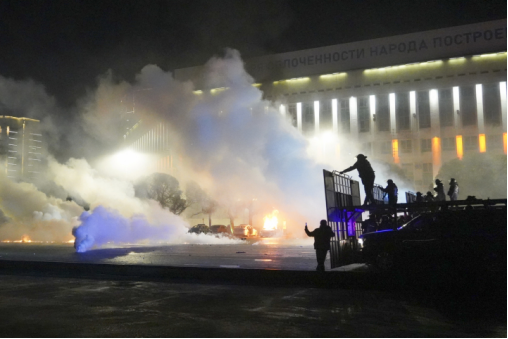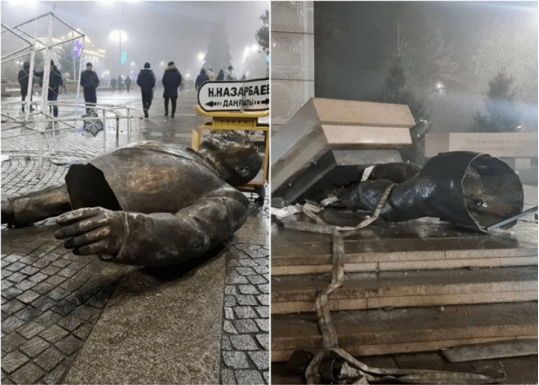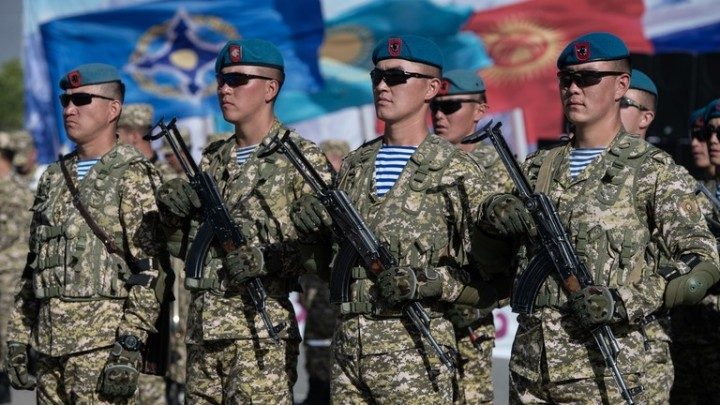China's neighbour and the world's largest landlocked country, Kazakhstan, is in a "sea of fire". The richest country in Central Asia has been in turmoil for days with riots and protests, and the situation in the country continues to be volatile.
On 5 January local time, President Tokaev declared a state of emergency throughout Kazakhstan. It was also reported that there was a state of disruption in local internet communications on the 5th. There are also reports in the media that telephone communications have been cut off on a large scale.
The government's response to the crisis has been to ensure that the country's economic and social development is not only affected by the riots and protests.
"The company's main reason is that it does not need an external catalyst, but the main reason is internal. On January 6, Tianmu News interviewed Professor Yang Shu, director of the Institute of Central Asian Studies at Lanzhou University, to explain in detail why the chaos in Kazakhstan started, why it is progressing so quickly and where it will eventually lead.

Professor Yang Shu does not rule out the presence of Western forces behind the chaos in Kazakhstan, but he believes that the main reason lies within Kazakhstan itself.
"This situation today reflects some deep-rooted social contradictions that have accumulated in Kazakhstan over the years." Yang Shu cites, for example, "regional differences, Kazakhstan's oil and gas resources are mainly in the west, around Zhanaozin and Aktau, but the main development is in the east, like on the Almaty and Nursultan side, so people in the west have been very discontented."
Discontent also stems from the distribution of power.Yang Shu explained that power is now mainly concentrated in the Nazarbayev group, and there has been a conflict over the distribution of power with the western oil and gas producing areas.

Finally it is the fact that under the surface of prosperity and affluence, some of the current problems of Kazakhstan's society are concealed. "Although the economic indicators look good, the contradictions of social injustice are prominent and the polarisation of the distribution of property is serious."
Moreover, there is something special about this riot. A common feature of the five Central Asian countries is that their leaders do not like to step down, usually opting for life terms. Kazakhstan's former president Nazarbayev, however, announced his voluntary resignation in 2019, but this resignation did not mean handing over power, but rather enabling his daughter to rise to power. The resignation does not mean a handover of power, but rather the promotion of his daughter.
According to Yang, the surface is the reason for the LPG price hike, but it is the concentration of all the above problems and conflicts that is the deeper reason for this mess.

"Unlike Kazakhstan, Russia is very experienced in dealing with similar events." Yang Shu believes that the CSCE's troop presence will play a considerable, if not decisive, role in the situation. Given Russia's influence in Central Asia, it is expected that the unrest in Kazakhstan will be brought under control relatively quickly.
